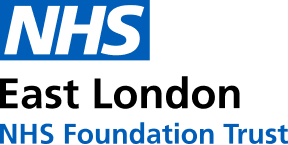Initially, all our plans and activities were up-ended to deal with the coronavirus pandemic in which healthcare research has played a vital role – from trials exploring ways to treat the disease, manage the contagion, and develop and test a vaccine, to dealing with the aftermath and inevitable impact on our mental health.
As the nationally prioritised studies were designed to take place in acute hospital settings, some of our researchers volunteered to redeploy to NHS Nightingale, St Barts and The Royal London to support that work.
ELFT staff were also proactive in designing COVID-related studies.
Jo Beckmann, a consultant paediatrician, worked with Public Health England to design the sKIDs study to examine the outbreak and prevalence of COVID-19 in schools, and our nursing and research staff were critical in its delivery. Their findings in Newham from June/July ‘20 contributed significantly to general reopening of schools in the autumn.
In an example of the benefits of our university partnerships, Frank Röhricht, Medical Director for Research & Innovation, worked in collaboration with Prof Rose McCabe at City University and Prof Renos Papadopoulos at University of Essex to design a survey to find out how the pandemic challenges have affected NHS staff in both positive and negative ways.
The pandemic caused a pause to non-COVID work during the first wave. Subsequently, however, most studies adapted their methods from face-to-face meetings to online/telephone recruitment before restarting.
